15 Reasons Why You Should Invest In Technical Writing
Technical writing is a specialized form of communication that uses clear and concise language to communicate complex information to a specific audience using a variety of well-structured elements. This type of writing is frequently used to convey technical information in science, engineering, technology, and medicine. what is a technical writer?
Still, it can also be found in other industries that require industrial writers to communicate technical information. Technically writing has the main objective of helping individuals and organizations understand complex topics to make informed decisions and facilitate the development of creative solutions to those complex topics.
The Characteristics of Technical Writing
Technical writing has several important characteristics that make it different from other types of writing, making it so distinctive from other forms of writing. These include several different things, some of which are listed below:
- Objectivity: A technical writer will write content based on facts and figures, which should be free of bias and emotions and be objective. The focus needs to be put on presenting accurate information clearly and concisely, with a focus on presenting the information accurately.
- Precision: It is essential to use precise language and avoid ambiguities to ensure that the readers understand what is being said. As the author, you must ensure that the meaning you intend to convey is clearly conveyed and that any misunderstanding may be avoided.
- Consistency: There is a need for technical writing to be consistent, which means that the writing style, tone, and format should be the same throughout the entire document. This will simplify the reader’s task of understanding and following the information as it will be easier for them to do so.
- Clarity: Certain principles should apply to technical writing, such as ensuring it is easy to understand and follow. There is a need for writers to use simple, straightforward language to communicate with their audience and to reduce the use of overly technical terms that the audience may not understand.
- Audience Awareness: When writing technical content, it is important to keep in mind the audience for whom it is intended. Writers should ensure they understand the audience’s background, experience, and level of technical knowledge before beginning the writing process. The writer of the article can tailor the language and the information to meet the reader’s specific needs in this way.
Need your Academic Tasks ASAP?
Need assistance with your Academic Tasks? Help is on the way!
Different Types of Technical Writing
It is possible to write technical documents in many different ways, including
- Instructional manual: This type of writing presents step-by-step instructions on performing a specific task in an organized and clear manner. There is a high demand for instructional manuals in engineering and technology.
- Technical report: This type presents research findings and an in-depth analysis of a specific technical problem. Scientists and engineers often use technical reports as part of their research and development.
- White paper: This type provides detailed information about a specific technical issue and in-depth analysis and discussion. Many industries, such as engineering, business, and politics, often use white papers to communicate.
- User manual: This is a form of written communication designed to provide information about a particular product or service and how to use it. There is a high demand for user manuals in consumer products and technology.
- Technical specification: A technical report is written to provide detailed information on how a product or system functions, how the product functions, and how the system performs. Engineers and technologists often use technical specifications as part of their work in their field.
The Writing Process for Technical Writing
In technical writing, there are usually several stages involved in the writing process, including
- Research: A writer’s first task is to gather information on the topic and research it before starting to write. The writer can obtain information from a wide range of sources, such as books, articles, websites, and other resources that can be accessed online.
- Planning: After planning the structure and organization of the document, the second phase of the writing process involves determining the document’s content. An outline should be created for the document, an audience should be identified, and the writer should decide what format and tone should be used when writing the document.
- Writing: During the third stage of the writing process, you will have to write the document itself to complete it. When writing for the audience, the writer must use clear and concise language while avoiding overly technical terms that may confuse the audience. In addition, the writer should ensure that the document is easy to follow and well-organized before it is sent to the client.
- Editing: After completing the first three stages of the writing process, it is time to review and edit the document. In addition to reviewing the article for clarity, precision, and consistency, the writer should make any necessary modifications to the text.
- Review: After you have written a document, it is imperative to have it reviewed by at least one other person before it is submitted. Whenever a document is written, the writer should get it reviewed by colleagues, subject-matter experts, or other people with knowledge of the topic in question.
The Importance of Technical Writing
Undoubtedly, Technical writing is one of the most important tools that individuals and organizations can use when conveying complex technical information. A technical writer’s ability to communicate effectively helps bridge the divide between technical experts and nontechnical stakeholders by using clear and concise language. A proper understanding of complex subjects, making informed decisions, and achieving an organization’s or individual’s goals is essential to thriving.
Final Remarks
Using clear and concise language is one of the traits of technical writing. It is a specialized form of writing that conveys complex information to a specific audience using clear and concise writing methods.
The writer should be familiar with the background and experience of the audience he or she is writing for, and he or she must work within a consistent style, tone, and format throughout the document. There is no doubt that technical writing is critical to helping individuals and organizations understand complex topics and make informed decisions regarding those subjects.
Recent Posts
Need your Academic Tasks ASAP?
Need assistance with your Academic Tasks? Help is on the way!





